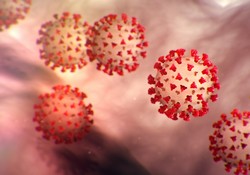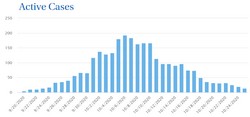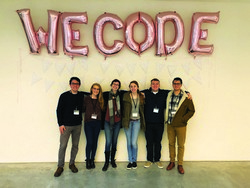An off-campus “super-spreader event” resulted in more than 100 positive COVID-19 cases and required an additional 200 students to quarantine, University contact tracers concluded.
President Patrick F. Leahy, Ed.D. addressed the sudden rise in cases in an email to the University community on Friday, Oct. 9. Through “extensive” contract tracing efforts, additional details of the super-spreader’s likely origin were identified.
“It appears that this increase in cases among students was tied to an off-campus event hosted two weeks ago,” Leahy wrote. “An overwhelming majority of the recent cases we have seen can be traced back to this isolated super-spreader event.”
Students’ symptoms in isolation and quarantine “have been mild,” but will be monitored closely for the remainder of the 14-day period, Leahy wrote.
Since the super-spreader event, the University has increased testing capacity and will now provide free testing for students and employees.
When a student is identified as COVID-19 positive, Maloney, Director of Health Services, reaches out to that student and explains they must enter isolation for a period of time, Mary Anne Nagy, Vice President for Student Life and Leadership Engagement, explained.
The student’s name is then turned over to the COVID Response Team to begin faculty outreach, and the Contract Tracing Team works to determine the student’s direct contacts. “Direct contacts would be people like your roommate or your teammates,” Nagy said.
Contact tracers began to notice a pattern which led to a particular event the third week of September. The tracing results revealed those testing positive to have attended the event, Nagy said. “We ultimately found out the location, and we also found out who were the students that actually live at that house,” Nagy said. “It’s really some detective work.”
University employees make up the contact tracers, Nagy explained.
Once the University learned the specifics of the super-spreader location, it was likely too late to begin any student disciplinary action, Nagy said.
“I’m not so much worried about taking action against students under the Code of Conduct as I am worried about intervening and stopping these events from happening again,” Nagy said. “We can’t afford another super-spreader event, that’s the reality.”

The off-campus super-spreader event received national attention, with publications such as NBC, ABC, and CBS News covering the topic.
“[Negative University attention] is not fair to all the students who are doing the right thing and are being very careful,” Nagy said. “I know that the broader Monmouth community is trying to do the right thing.”
The University resumed in-person instruction on Wednesday, Oct. 21. The temporary move to remote instruction was “…necessitated by the dramatic increase in case activity that our campus community experienced earlier this month,” Leahy wrote. The University has since had only 3 positive tests out of 180 administered last week, according to Nagy.
“We are able to go back to our pre-break course modalities in large part because our positive cases are on the decline,” Leahy said in a video message addressed to the University community. “They’ve been going down dramatically over the last couple of weeks, and that’s a good thing, but we’re going to need everyone to redouble their efforts over the next few weeks in order to keep our fall semester intact.”
IMAGE TAKEN from Monmouth.edu
IMAGE TAKEN from CDC



